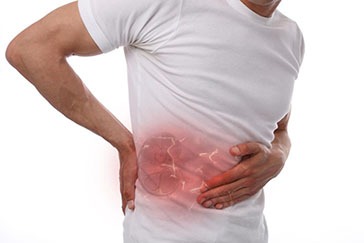 Book Appt.
Book Appt.
 Call Now
Call Now


The stomach is a vital organ responsible for digesting food and breaking it down into nutrients that the body can absorb. The stomach lining is equipped with a protective layer of mucus that shields it from the corrosive effects of stomach acid. Gastritis occurs when this protective lining becomes inflamed or eroded, allowing stomach acid to damage the underlying tissue.
Causes of Gastritis
Gastritis can be triggered by a variety of factors, with the most common causes including:
Symptoms of Gastritis
The symptoms of gastritis can vary in severity and presentation. Common signs and symptoms may include:
Diagnosis of Gastritis
The diagnosis of gastritis typically involves a combination of medical history, physical examination, and diagnostic tests. These may include:
Treatment Options
The treatment of gastritis depends on its underlying cause and severity. Common approaches to managing gastritis include:
Prognosis and Outlook
The prognosis for individuals with gastritis is generally favorable, especially when the underlying cause is identified and effectively treated. In many cases, gastritis can be managed or resolved with appropriate medical care and lifestyle modifications.
Gastritis is a common gastrointestinal condition characterized by inflammation of the stomach lining. It can be caused by a variety of factors, including infections, medications, and lifestyle choices. Recognizing the symptoms, seeking prompt medical evaluation, and addressing the underlying causes are key steps in managing gastritis and ensuring a better quality of life for affected individuals.
SHALBY Sanar International Hospitals provides extensive medical procedures backed up with our state-of-the-art technology and a team of highly qualified & experienced clinical experts.

Acute Gastroenteritis Treatment by Dr. Amit Mittal | SHALBY Sanar International Hospitals
Our doctors pen down their research findings and experiences from time to time. Their words provide deep insight into the latest techniques, technologies and other advancements in healthcare. It provides expert answers to all kinds of health questions for real-life issues.
VIEW ALL




Since the day of its foundation, SHALBY Sanar International Hospitals is committed to provide comprehensive healthcare services. It regularly organizes awareness programs in its premises and encourages outdoor healthcare activities and camps with an intent to put focus on preventive healthcare.
VIEW ALL